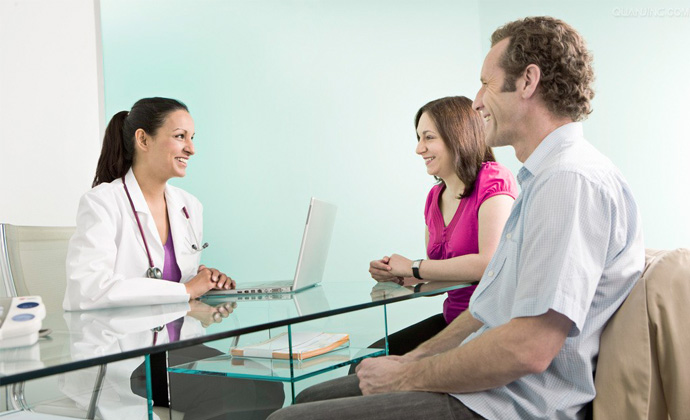Overview
A typical pregnancy lasts 40 weeks from the first day of your last menstrual period (LMP) to the birth of the baby. It is divided into three stages, called trimesters: first trimester, second trimester, and third trimester.
The Three Stages of Pregnancy(1st, 2nd, and 3rd Trimester)
Conception to about the 12th week of pregnancy marks the first trimester. The second trimester is weeks 13 to 27, and the third trimester starts about 28 weeks and lasts until birth.
First Trimester: Week 1 (conception) – Week 12
Early Changes in a Woman's Body
The early changes that signify pregnancy become present in the first trimester. A missed period may be the first sign you are pregnant. Other changes will also occur. Hormonal changes will affect almost every organ in the body. Some signs of early pregnancy include:
Extreme fatigue;
Tender, swollen breasts. Nipples may protrude;
Nausea with or without throwing up (morning sickness);
Cravings or aversion to certain foods;
Mood swings;
Constipation;
Frequent urination;
Headache;
Heartburn;
Weight gain or loss.
First Trimester: Changes in a Woman's Daily Routine
Some of the changes you experience in your first trimester may cause you to revise your daily routine. You may need to go to bed earlier or eat more frequent or smaller meals. Some women experience a lot of discomfort, and others may not feel any at all. Each pregnancy is different and even if you've been pregnant before you may feel completely different with each subsequent pregnancy.
Second trimester: Week 13 – Week 28
Changes a Woman May Experience
Once you enter the second trimester you may find it easier than the first. Your nausea (morning sickness) and fatigue may lessen or go away completely. However, you will also notice more changes to your body. That "baby bump" will start to show as your abdomen expands with the growing baby. By the end of the second trimester you will even be able to feel your baby move.
Some changes you may notice in your body in the second trimester include:
Back, abdomen, groin, or thigh aches and pains;
Stretch marks on your abdomen, breasts, thighs, or buttocks;
Darkening of the skin around your nipples;
A line on the skin running from belly button to pubic hairline (linea nigra);
Patches of darker skin, usually over the cheeks, forehead, nose, or upper lip. This is sometimes called the mask of pregnancy (melasma, or Chloasma faciei);
Numb or tingling hands (carpal tunnel syndrome);
Itching on the abdomen, palms, and soles of the feet. (Call your doctor if you have nausea, loss of appetite, vomiting, yellowing of skin, or fatigue combined with itching. These can be signs of a liver problem);
Swelling of the ankles, fingers, and face. (If you notice any sudden or extreme swelling or if you gain a lot of weight quickly, call your doctor immediately. This could be a sign of a serious condition called preeclampsia).
Third Trimester: Week 29 – Week 40 (birth)
Changes a Woman May Experience
The third trimester is the final stage of pregnancy. Discomforts that started in the second trimester will likely continue, along with some new ones. As the baby grows and puts more pressure on your internal organs, you may find you have difficulty breathing and have to urinate more frequently. This is normal and once you give birth these problems should go away.
In the third and final trimester you will notice more physical changes, including:
Swelling of the ankles, fingers, and face. (If you notice any sudden or extreme swelling or if you gain a lot of weight really quickly, call your doctor right away. This could be a sign of a serious condition called preeclampsia).
Hemorrhoids
Tender breasts, which may leak a watery pre-milk called colostrum
Your belly button may protrude
The baby "dropping" or moving lower in your abdomen
Contractions, which can be a sign of real or false labor
Other symptoms you may notice in the third trimester include shortness of breath, heartburn, and difficulty sleeping.
Third Trimester: Changes as the Due Date Approaches
Other changes are happening in your body during the third trimester that you can't see. As your due date approaches, your cervix becomes thinner and softer in a process called effacing that helps the birth canal (vagina) to open during childbirth. Your doctor will monitor the progress of your pregnancy with regular exams, especially as you near your due date.




